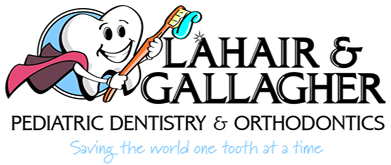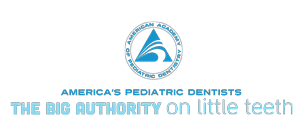

New Patient Forms:
New Patients, save time by printing out and completing the forms below before your first visit.
Contact and Insurance Information
Authorization to Release Information
Advice for Parents
Early diagnosis is important for successful treatment of periodontal disease. Therefore, it is important that children receive a periodontal examination as part of the routine dental visits. Be aware that if your child has an advanced form of periodontal disease, this may be an early sign of the systemic disease. A general medical evaluation should be considered for children who exhibit severe periodontitis, especially if it appears resistant to therapy.
An important step in the fight against periodontal disease is to establish good oral health habits with your child early. When your child is about a year old, you can begin using toothpaste when brushing their teeth. However, only use a pea-sized portion on the brush and press it into the bristles so your child won't eat it And, when the gaps between your child's teeth close, it's important to start flossing.
Serve as a good role model by practicing good oral health care habits yourself and schedule regular dental visits for family check-ups, periodontal evaluation, and cleanings.
Check your child's mouth for signs of periodontal disease, including bleeding gums, swollen and bright red gums, gums that are receding away from the teeth, and bad breath.
If your child currently has poor oral health habits, work with your child to change these now, It's much easier to modify these habits in a child than in an adult. A healthy smile, good breath and strong teeth aU contribute to a young person's sense of personal appearance, as well as confidence and self-esteem.
What Causes Tooth Decay?
Several specific types of bacteria that live on the teeth cause decay. When sugar is consumed, the bacteria use the sugar and then manufacture acid that dissolve teeth and cause an infection in the tooth. This infection is called decay.
What Is Baby Bottle Tooth Decay?
Babies who go to bed with a bottle of milk, formula, or juice are more likely to get tooth decay, Because the sugar and the formula, milk, or juice stays in contact with the teeth for a long time during the night, the teeth can decay quickly.
Some tips to avoid baby bottle tooth decay:
- Put your child to bed with a bottle of plain water, not milk or juice.
- Stop nursing when your child is asleep or has stopped sucking on the bottle.
- Try not to let your child walk around using a bottle of milk or juice as a pacifier.
- Start to teach your child to drink from a cup at about six months of age. Plan to stop using a Bottle by 12 to 14 months at the latest.
- Don't dip your child's pacifier in honey or sugar.
What Is Fluoride?
Fluoride helps make teeth strong and prevents tooth decay. If your water does not have enough fluoride, your doctor may prescribe fluoride supplements (drops or pills). Give these drops or pills every day, starting when your child is about six months old. Only give as much as the directions say to use because too much fluoride can cause spots on your child's teeth. Also, be sure to call your local water authority and ask if your water is fluoridated. If it is, tell your dentist or pediatrician so that your child is not being over fluoridated. Children should take these drops or pills until they are 10 to 12 years old (or until you move to an area with fluoride in the water).

